Schwab: Welcome to Jewish History Nerds, where we do exactly what it sounds like, nerd out on awesome stories in Jewish history.
Yael: I’m Yael, and my childhood dream was to stay in school forever.
Schwab: I’m Schwab, and I am in school forever. And yes, you’re hearing us, which means we are back for season two. And we’ve changed the name, Jewish History Nerds, but don’t worry, all the other content remains the same.
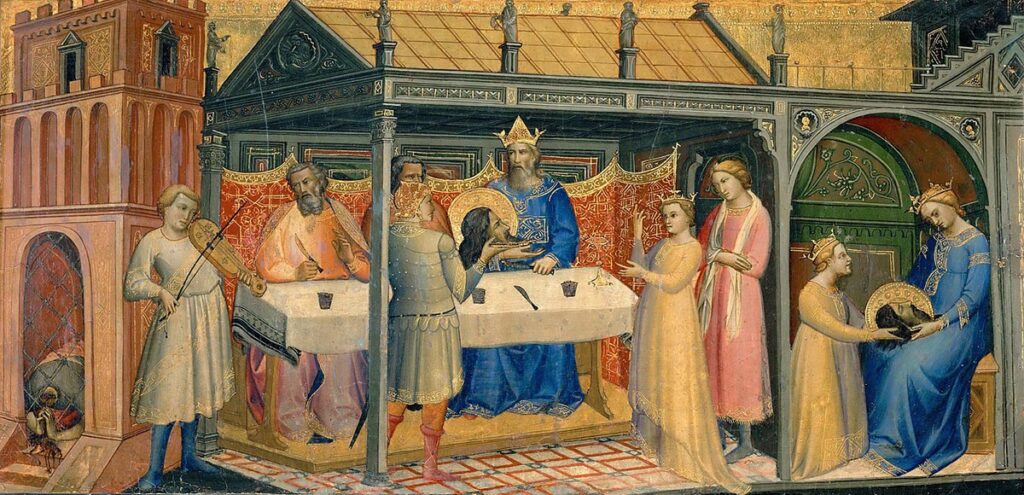
Yael: And we’re so excited to be learning and teaching together with you, nerd nation.
Schwab: Nerd nation, love it.
Yael: Gotta give credit to Schwab for that one.
Schwab: How was your hiatus, Yael?
Yael: Thank you for asking. I actually really missed you and our entire team. I felt a big void in my week, but it’s been fun. I’ve been, you know, carefully following NFL free agency, watching a lot of Law & Order all those super, super important, critical things.
Schwab: I’ve also really missed this and the chance to discuss all the interesting things we get into and learn with you. And my time, similarly, has been occupied with important things.
Yael: Maybe, like, a little more important than mine.
Schwab: Yeah (laughs). My wife and I had a baby girl over the hiatus.
Yael: Mazel tov.
Schwab: Thank you. Uh, we did not name her Babatha.
Yael: (laughs). Was it on the list?
Schwab: it was on my list. Did not get very far in the running.
Yael: It’s a real shame.
Schwab: Yeah. But also, heard a lot of really nice comments from listeners, which I really enjoyed, so definitely keep them coming, nerd nation. So, how are we kicking off season two, Yael?
Yael: So, we are kicking off season two with a fascinating, yet utterly horrible and brutal, character, King Herod. You might remember that our first-ever episode was about Josephus, the famed Jewish historian. And King Herod lived around the same time, which is in the first century BCE. He was a remarkable leader of Judea in the sense that he was responsible for some of the largest and most impressive public works projects and some other innovations, like tax relief for the people living in the land.
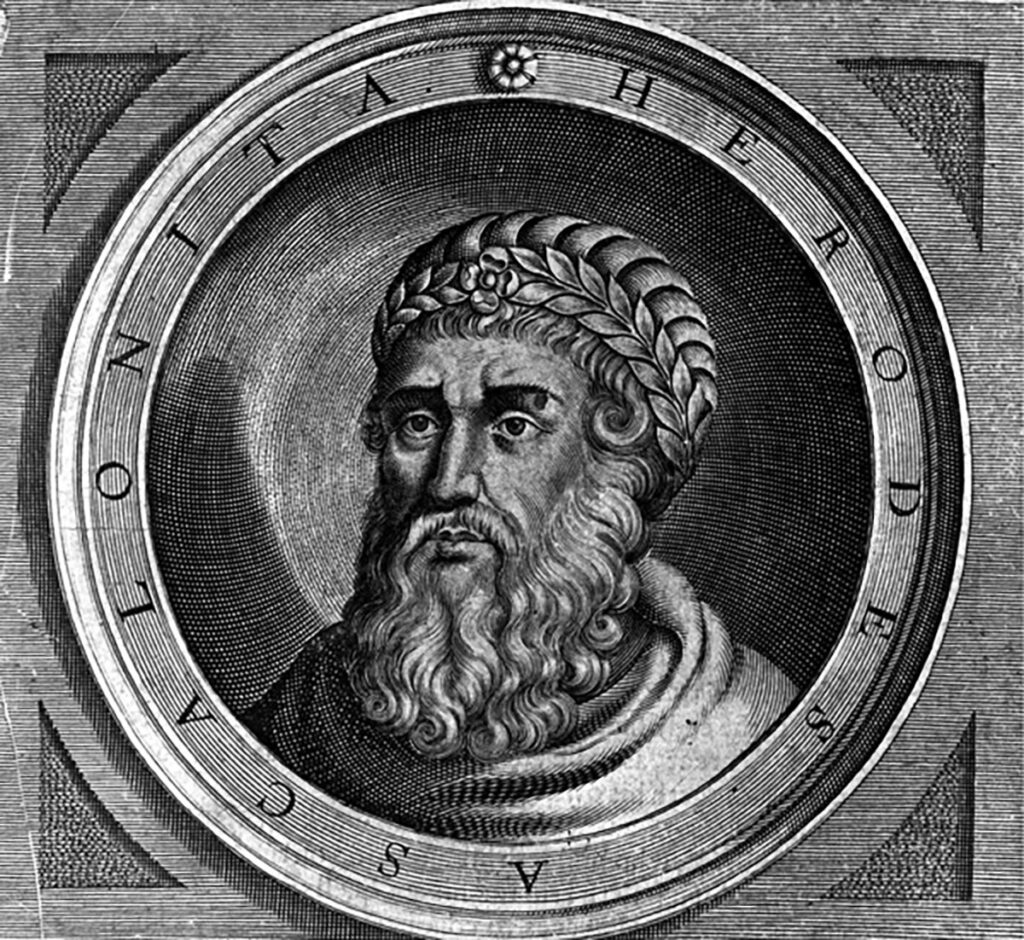
Schwab: Knowing you and knowing this podcast, it feels like there’s a big but coming.
Yael: Yeah. He was also maybe a bit of a sociopath. He killed a whole bunch of his family members pretty mercilessly because of his paranoia that they would take away his power. Not only during his life, but also after his life. Like, he had people killed because he was worried those people would have power after he died, and he just was like, “No.” So, TLDR, King Herod was a successor to the leaders in the Hasmonean dynasty, which you explained so eloquently last season in our Hanukkah episode.
Schwab: Oh, thanks.
Yael: So basically, we’re picking up in the Hasmonean era. The Greek and Roman influences are taking root in the land of Israel.
Schwab: The Temple has not been destroyed yet, right?
Yael: Correct. The Temple is standing. Greek and Roman influences are taking root. You might recall that in his desire to take down the Hellenized Jews and the Seleucid Greeks, Judah Maccabee had aligned himself with the Romans and brought some Roman leaders into the land. That’s gonna come back and bite him in the you know what.
Schwab: Yeah.
Yael: Because now we have this Roman influence, and Herod is one of the leaders who brings that Roman influence to the forefront.
Schwab: Mm-hmm.
Yael: Just important to clarify, he is not Roman. He is an Idumean.
Schwab: Ooh, what’s that?
Yael: The Idumeans, I think in Biblical commentary, they’re often called Edomites.
Schwab: Ah, okay. Heard of that.
Yael: They were an ethnic group that lived slightly south of the Dead Sea, I think probably around the area that we now know as Be’er-Sheva, give or take.
Schwab: Mm-hmm. So is he not Jewish or is he not ethnically Judean?
Yael: The Idumeans were, and this is kind of a blemish on Jewish history, they were forcibly converted to Judaism, and forcible conversion is usually something that happens to Jews, not something that they make happen. You know, while Judaism welcomes converts, there is often a hesitancy to proselytize. We’re not supposed to proselytize. So the fact that this group of people was forcibly converted is unusual.
However, Herod was a Jew, completely a Jew. his family had converted, but they lived as Jews. He himself did not particularly care for Jewish law. And he really ruled as a secularist, but in terms of his religious identity, or how the other Jews, the Pharisees, the rabbis, the Zealots viewed him, he was completely a Jew.
Schwab: But how did this Idumean, was that the word? How did he wind up being king?
Yael: Okay. So, before we get there, do you have any background on Herod?
Schwab: I’ve heard of him before. I know he built a bunch of things, including a fortress that’s named after him that I definitely visited quite some time ago.
Yael: You’re a step ahead of me. I have not been there, but I know exactly what you’re talking about.
Schwab: Herodium.
Yael: Yes, that’s in Judea.
Schwab: In Judea, yeah. And I wanna say he also was involved in, in expanding the Temple, construction projects involving the Temple.
Yael: Yes. In fact, the Western Wall or the Wailing Wall or the Kotel that is a holy space for Jews today was built by Herod, by one of the 10,000 people that he quote, unquote, employed to beautify and expand the Temple complex. The Kotel was not a wall of the actual Temple. It was a retaining wall around the Temple complex.
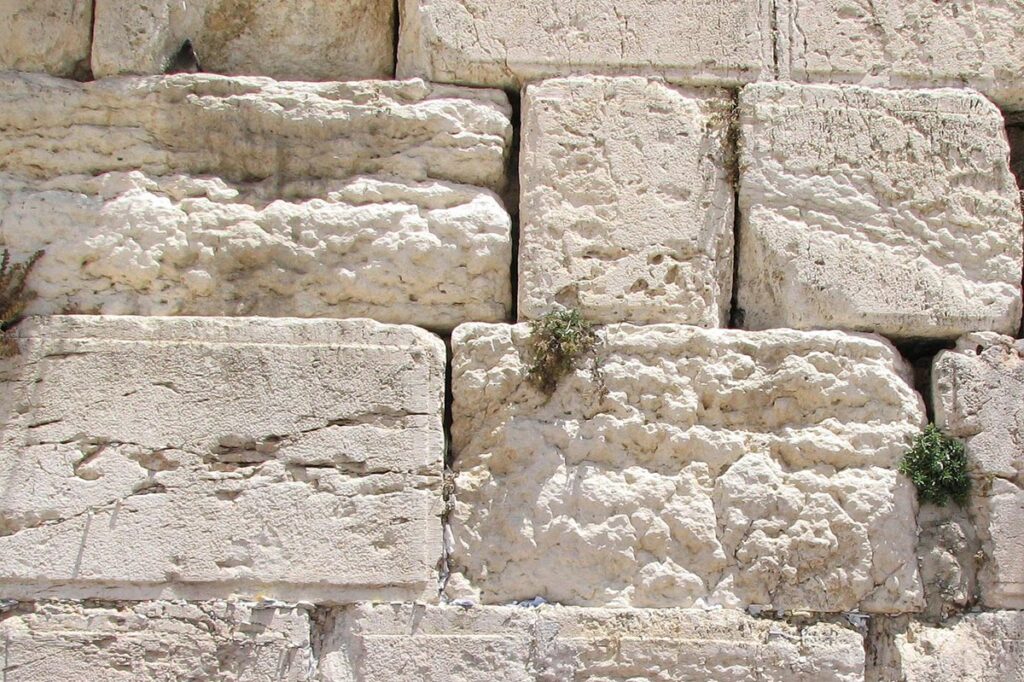
The Temple itself was on the site that is now covered by the Dome of the Rock, and Herod expanded and beautified that area as a means of engaging and endearing himself to the Jews and the populace in general. Because as brutal as he was and as bloodthirsty as he was, which we’re gonna get to, he also was an incredibly good politician and diplomat. Kind of the scariest combination, someone who has the potential to commit real violence but can also sweet talk you into anything.
Schwab: Oh, boy. Yeah.
Yael: In addition to the Temple expansion, he built the city of Caesarea, which is in the north of Israel. And the city of Caesarea was intended by Herod to be a real Roman city. It had aqueducts. It had hippodromes.
Schwab: What are hippodromes?
Yael: Hippodromes are horse racing arenas.
Schwab: Cool, yeah.
Yael: You know, round structures. similar to amphitheaters.
Schwab: Ah, okay. Yeah.
Yael: He also built this artificial reef that helped expand and modernize the harbor at Caesarea. And it was built in a completely modern way by taking volcanic ash that they brought in from the Italian Peninsula and depositing in the sea, in the Mediterranean, where it hardened into this concrete or material that made up the reef.
Schwab: I know there’s so much else to get to. I would totally do the entire episode just on this. This is so fascinating.
Yael: Caesarea happens to be one of my favorite places. It is absolutely gorgeous. The views of the Mediterranean, the aqueducts, the architectural and archeological ruins that are there are really a sight to behold.
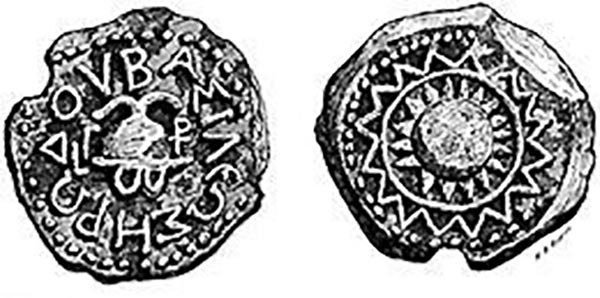
Schwab: So he was making it as, like, a very modern, very entertainment and sort of luxury focused Roman city.
Yael: It’s interesting that you say that because, uh, Caesarea today is actually the home of the only golf course in Israel, and that kinda seems like the vibe that Herod was actually going for.
Schwab: Kinda like a first century BCE Las Vegas, is that fair?
Yael: It’s so funny that you said that because the entire story of Herod, particularly the fratricidal tendencies, the killing of his brothers and a lot of other people close to him, spoiler alert, reminds me so much of The Godfather. And I don’t know if you’re familiar with The Godfather.
Schwab: I’m familiar with The Godfather, yep.
Yael: But you know, the family relocates to Las Vegas, where Michael is going to open a resort. And there’s also maybe a killing of somebody’s brother that happens while they’re there. There’s just a lot of really good parallels. Great movie, highly recommend.
Schwab: It is a very good movie with one very good sequel.
Yael: You know, I haven’t seen three.
Schwab: You don’t have to.
Yael: That’s what I hear.
Schwab: Yeah.
Yael: Um.
Schwab: We’re way off track, yeah (laughs).
Yael: Yes. How did Herod come to power? Herod’s father, Antipater, was the brother of one of the Hasmonean priests, I believe. And because the Hasmoneans were in power at that time, Antipater was able to use his influence to name his son Herod, Governor General of the Galilee, which is where Caesarea is. And if you recall-
Schwab: Josephus was also a governor general of the Galilee, right?
Yael: Yes. Josephus was governor general of the Galilee.
Schwab: This is gonna sound very self-centered, but I’ve listened to the Josephus episode and most of our episodes from season one a number of times, so I know them pretty well.
Yael: Wow. I’m glad that it’s stuck with you.
Schwab: Herod was after Josephus or before Josephus?
Yael: Herod was first. And after being governor general of the Galilee, Herod, through some political machinations that would make House of Cards proud, becomes the king.
And Herod does a bunch of stuff in addition to all these public works projects that angers the religious community in the land of Judea, including the imposition of the death penalty on some rebels who were trying to take down Herod’s uncle, who was basically the leader who ended up getting Herod to power. Um, so Herod takes on this rebellion. He quashes it rather violently and imposes the death penalty. The Sanhedrin, the Jewish court-
Schwab: Yeah. Are not fans of that.
Yael: finds out about this and they are particularly angry that he would use secular power to impose the death penalty.
Schwab: Ooh, interesting. Yeah.
Yael: So, he comes before the Sanhedrin. There’re actually two accounts of this. One is from Josephus, who says that Herod, in a fit of chutzpah, comes before the Sanhedrin fully armed in order to intimidate them.
The other account is from the Talmud in the tractate of Sanhedrin, and that account is slightly different. It says that the members of the Sanhedrin were quarreling and that basically, while the Sanhedrin is talking about this, Hurcanus comes in and Herod’s able to escape. But it is an interesting example of a case where we do have two accounts of the historical record, one coming from Josephus, who we like to consider a secular historian and one coming from the Talmud, which-
Schwab: And the whole issue is the tension between, you know, this like secular and religious authority. And he’s like bridging this gap somehow-
Yael: A hundred percent.
Schwab: … about a Jewish king. Well…
Yael: He’s really trying to toe the line there, not because he cares about religion, but because he wants the populace to follow him…to love him, but also to be scared of him and to obey him. So, he does rebuild the Temple, but later in his life he also installs the Roman eagle, a golden icon of a Roman eagle, in or on the Temple, which is sort of antireligious, but you know, it’s still the Temple so it’s still religious. But it’s also sucking up to the Romans. So I think hopefully I’ve conveyed that Herod was a particularly influential ruler on the public works, modernization side of things.
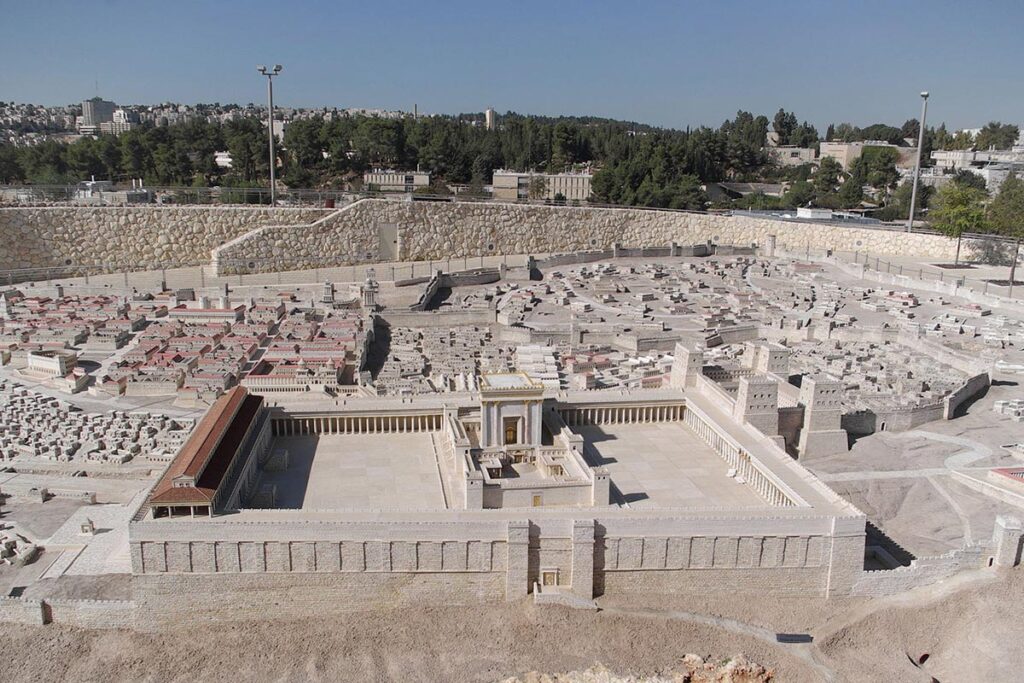
Schwab: And it comes to this day of like, that I feel like comes up in almost every episode, no matter what era it is, but modernization often comes hand in hand with some sort of tension against traditional religious practice. Like, you can’t just technologically or economically modernize. There’s always going to be some sort of tension with religious elements to that.
Yael: There’s always a cost. And a lot of times, things come to blows whenever there is a change. So now that we’ve established Herod’s greatness as a politician and as a revitalizer of particular areas of the country, we can focus on what he-
Schwab: Now we can get into the family murder part?
Yael: Yes. What he was equally known for, which is the soap operatic part of his life and his brutality. So, Herod had 10 wives and 15 children. He was the Nick Cannon of the first century BCE.
Schwab: If you’re into murdering members of your family, it’s good to have a lot of people to murder, I guess.
Yael: Yeah. I didn’t know where you were going with that, and I was like, “I’m not the biggest fan of Nick Cannon, but I don’t think he’s a murderer.”
Schwab: Yeah.
Yael: Anyway, his second wife, Mariamne, or Miriam in Hebrew, was very beautiful, and she was a princess of the Hasmonean dynasty. So in addition to marrying her for her youth and her beauty, he also was able to maneuver a political gain through the marriage. His first wife was named Doris, which fun fact, my first car was named Doris.
Schwab: Nice. I thought you were gonna say maybe that it was your grandmother’s name.
Yael: No, but it was my grandfather’s car. 1995 Oldsmobile Cutlass Supreme in gold.
Schwab: Ooh, nice. I did not realize that Doris was such an old name.
Yael: Neither did I. I thought it was an old lady name, but not like an old antiquities name. First, he marries Doris, who ultimately later in his life he expels from Judea, not once but twice. Then he marries the first Mariamne. He has another wife named Mariamne later on. In a Ron Swanson-like twist of Tammy one and Tammy two, he has-
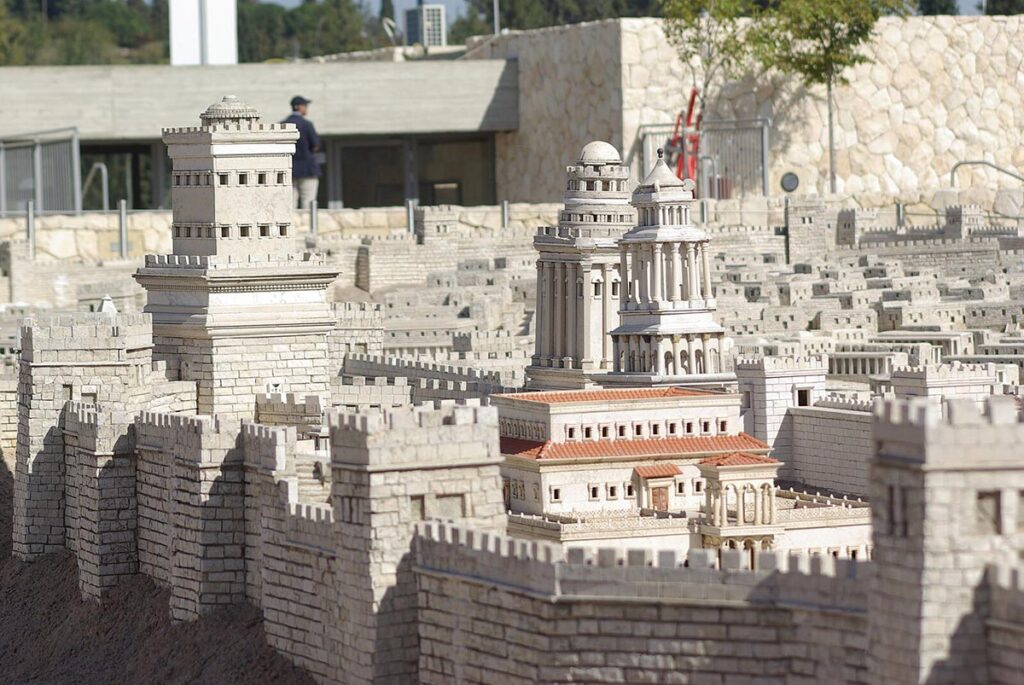
Schwab: Yeah, of course.
Yael: … Mariamne I and Mariamne II.
Schwab: Was Herod’s mother’s name also Mariamne?
Yael: No. Unfortunately, her name was not Mariamne or Tammy. So, he marries Mariamne. He has at least two sons with her, I think also a daughter. And because he’s paranoid and because he’s brutal and because he seems to just really like killing anyone who he suspects of having wronged him, when he suspects her of adultery, which may or may not have been true but was definitely a theory that was egged on by Herod’s mother and sister, who did not love Mariamne, he explodes in a fit of rage and kills her.
Schwab: Kills her himself or has her killed?
Yael: I think he has her killed. And immediately thereafter, Herod regrets it. You know, it was one of these fits of passion situations, and because he regrets it and he does not want to part with his beloved Mariamne, he has her body embalmed in honey.
Schwab: That’s a choice. That is a direction you can go in.
Yael: It is a choice.
Schwab: Is that effective?
Yael: So I think it is effective in that it preserves the body, but all I think of is the fruit flies. Thousands, millions of fruit flies.
Schwab: I also have more, again, like, have more questions on just like the mechanics of this part of like, I’m imagining, and I don’t… in my imagination, it’s a extremely large container of honey. It probably isn’t actually that.
Yael: It’s bigger than Winnie the Pooh’s little jar.
Schwab: Right. And I’m imagining it as a giant jar that says honey on the outside and then it’s just sort of like her, her body dipped in this huge jar.
Yael: So, I did a little bit of reading on this because it’s-
Schwab: On this honey situation? Okay, good.
Yael: On the honey situation, because it’s so bizarre. He was not the only person that ever had a loved one or an acquaintance embalmed in honey.
Schwab: Of course not. Standard practice, yeah.
Yael: There was a practice among certain people of embalming their loved ones in honey, and it’s called the mellified man. To mellify is to subsume something in honey or turn it into honey.
Schwab: That is an amazing word that is going to be very hard for me to use in any context.
Yael: Well, if I remember my ninth grade Spanish correctly, miel is honey. Thus, miel, mellified man. There were a bunch of people who did this. I’m not sure why. I’m not sure what they got out of it, but definitely an interesting point for further reading and a totally new spin on calling your wife honey.
Schwab: My main question is, where did he get all the bees?
Yael: That is a really good question, especially because we know that today there is a honey shortage because there is a bee shortage. And I don’t know, that’s a great question. As fascinating as this is, and it really is fascinating and so weird, I do want to get to all the other people that he killed.
After he killed Miriam, Mariamne, he murders her younger brother, Aristobulus, who at age of 17 had been appointed the high priest. And apparently, he was super handsome, and that did not sit well with Herod. And he was jealous and worried that this handsome high priest was gonna come in and, you know, take some of the attention off of him, so you know, in Godfather fashion, he offs his brother-in-law. He has him drowned in a pool in Jericho.
Schwab: To clarify, in water.
Yael: Yes, in water.
Schwab: Not honey.
Yael: Jericho was another place where Herod had built some significant structures. He had winter palaces there with a lot of gardens. And you know, somehow he got Aristobulus there and had him drowned. Either maybe it was like one of those Doctor Evil things where the ground drops out from below him and he falls into a pit of water, or he sends him out on a fishing boat, like Fredo.
Schwab: Somehow, he gets it done.
Yael: … he gets it done. Then he kills another brother-in-law named Kostobar, who he suspected of fomenting a rebellion against him. You might notice this paranoia theme. And I can’t say for sure whether or not any of this paranoia was justified. You know, just because you’re paranoid doesn’t mean they’re not coming after you.
Schwab: It’s also one of those things that, like, becomes self-fulfilling. The more you’re just offing random family members and political people, the more likely it is that people are going to start conspiring to say, “Hey, we need to maybe get rid of this guy.”
Yael: This is a fair assessment. So he had offed a wife and these two brothers-in-law, and then things get really dark and twisty. He kills two of his own sons.
Schwab: Hmm. Whoa. That is really dark.
Yael: Two of the sons that he had with Mariamne, Alexander and Aristobulus. This is another Aristobulus.
Schwab: Named after his brother-in-law who he has killed.
Yael: Exactly. There are so many repeat names here, and I apologize if I confuse any of the people. He then expels another brother who he suspects of overthrowing him. He expels Doris for the first time. He expels Doris for the second time. He jails his son with Doris, who was named Antipater, which was the name of Herod’s father.
Schwab: Yeah.
Yael: And then he eventually executes Antipater as well, so another son that he kills. This was not happening in secret. Everyone knew about this. And the emperor in Rome, Augustus, knows about this, and he says that it’s better to be Herod’s pig than to be Herod’s son. The insinuation was that Herod was not killing his pigs because of the laws of Kashrut.
Schwab: Oh, interesting. Ah.
Yael: Which may or may not be true, but it’s funny to think about how he’s obviously still keeping kosher. But you know, the laws of murder are not particularly on his mind.
Schwab: Yeah. And that’s fascinating that, I guess, that, that line, that the way the Romans saw him was as this, like, religious Jewish figure. They’re like, “Oh, that guy. He doesn’t eat pig. “He’s so religious.”
Yael: And actually, his marriage to Mariamne bolstered his Jewish bonafides because she was a Hasmonean princess. So even though he was fully a Jew-
Schwab: Yeah. And not just a Hasmonean princess, her brother was the high priest. He’s related to, like, yeah, like real important people.
Yael: Yeah, exactly. So because he’s an Idumean, it helps that he marries into this really important family. Bottom line is Herod is a brutal, bloodthirsty-
Schwab: Paranoid.
Yael: … paranoid, yes. All those synonyms and words. And one of the words that’s often used to describe him is Stalin-esque. That the 20th century brutal dictator Joseph Stalin was very similar in activity and temperament to Herod in that he kept the trains running on time in Russia and did create some relief in terms of public works and food, albeit the food was provided on bread lines, but at the same time he was murdering vast numbers of his citizens.
So, in calling Herod Stalin-esque, I am reminded that in today’s geopolitical climate there are a number of strongmen, extremist leaders who have come to power. And I guess the question that has been gnawing at me while reading about Herod is what is tolerable for the sake of safety, security in ordinary life… as you mentioned before, usually modernization comes at a cost. And so, we talk about Herod, he’s often spoken about as a great leader.
Schwab: Yeah, right. And it’s not inconsequential. It’s not like he’s someone that we can sort of just wave away and say, “Okay, he was a king of Judea at some point.” Like, the Kotel, the Western Wall, which is the holiest site in Judaism, is built by this man. We can’t ignore him as a part of history.
Yael: And not only that, in addition to the building that he did in the land of Israel, he also made contributions monetarily and I think in some ways with labor that he provided, people who worked for him, probably not for a wage, to other structures outside of Israel. He donated to temples of other religions. Again, he was doing all of this to keep the populace “happy.” I don’t know if they were emotionally happy, but they were kept alive and fed, and you know, they had water because the aqueducts were bringing them water. And they had access to goods from overseas because they had this new modern port in Caesarea, and they had a big, new, beautiful Temple within which they could worship freely. And, and I don’t like the good/bad binary, but you know, Herod was impactful.
Schwab: Mm-hmm. And it brings up this question of, like, when there is something that we want or is that, is beneficial to us, what are we willing to, to stomach. If there’s a leader who’s doing a lot of the things that we really like or approve of or would really want but isn’t in other areas, where do we draw those, those lines? And where do our allegiances lie? And, and I think it’s the type of question that is more complicated than it seems at first glance. It’s actually a really complicated question.
Yael: And Herod, in addition to wanting to be loved or worshiped while he’s ruling, as I mentioned before, he’s very concerned about what happens after his own death.
Schwab: Yeah. What does end up happening after his own death? After he eliminated every possible (laughs) heir.
Yael: So, he quote, unquote, “goes mad,” which, you know, I would argue that maybe that had started earlier. And he gets very ill, and in preparation for his own death, he builds the Herodian, a tomb is prepared there. But he also has all of the prominent Jewish leaders in the land of Israel put in jail because he doesn’t want anyone celebrating when he dies. And if those guys are in jail, A, they can’t celebrate. And B, everybody else will be so sad that they won’t celebrate either.
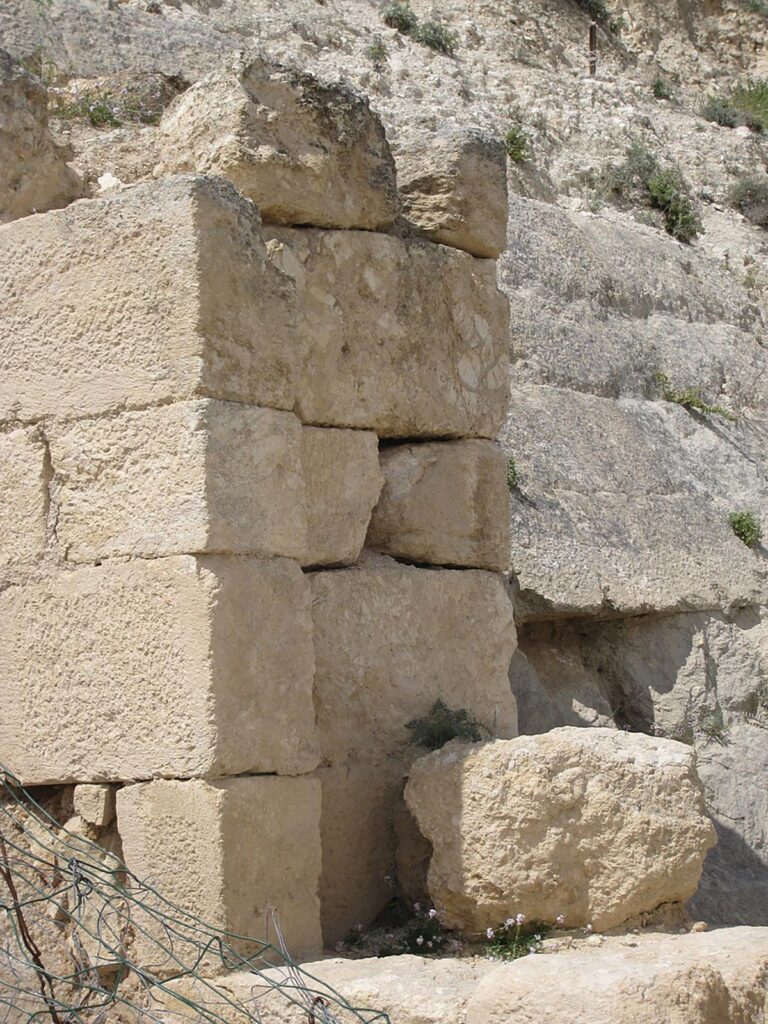
Schwab: Sad ’cause those people are in jail?
Yael: Yeah, ’cause their leaders are in jail.
Schwab: Yeah.
Yael: One of Herod’s sisters eventually gets the guards in the jail to believe that Herod had changed his wishes and has those leaders released, but his plan was to lock up all these people who might delight in his death.
So legacy was very important to him. How he was remembered was very important to him… And you know, We don’t know what he believed about the afterlife. It’s possible that he didn’t want these people celebrating because he believed he was going to be watching.
Schwab: Wherever he was going in the afterlife, it was cool to do the murder and the jailing.
Yael: He did not arrange to have himself embalmed in honey. He died in the year 4 BCE. One thing I didn’t mention is he tried to kill himself-
Schwab: Oh, okay.
Yael: … at the end of his life when he got sick.
Yael: he tried to kill himself with an apple knife. Which, to my understanding, was a knife used to cut apples and not a knife manufactured by Apple.
Schwab: Okay. (laughs)
Yael: My dad jokes are out of control today.
Schwab: It’d be an incredibly well-designed knife. It costs three times as much as all other knives, but the truth is, it works really well.
Yael: For two years, until the new one comes out and the old one is completely useless.
Schwab: I don’t know. That last part that you said also makes me feel like there’s something tragic about him too, you know? Like, obviously, his behavior is awful, but there’s something sad about his whole story and his paranoia and jealousy. And like, he clearly has issues.
Yael: He had the potential to live his life in these beautiful palaces of Jericho with gardens with his 10 beautiful wives and his 15 beautiful children, and he kills a whole bunch of them so that he could sort of barricade himself in this chamber of power that, who knows if he ever really got to enjoy. So that’s another thing, building up all of this power and influence, if all you do is build it up and all you do is bolster it, what’s the point?
Schwab: Right. Is it just about the power? It’s not even about what you do with it?
Yael: At the end of the day, he died like everybody else. He was entombed at Herodian. For many, many years, archeologists tried to find his tomb. An Israeli archeologist named Ehud Netzer believes he found Herod’s sarcophagus, but it was shattered and has definitely been looted multiple times. So, you know, at the end of the day, he’s just a man.
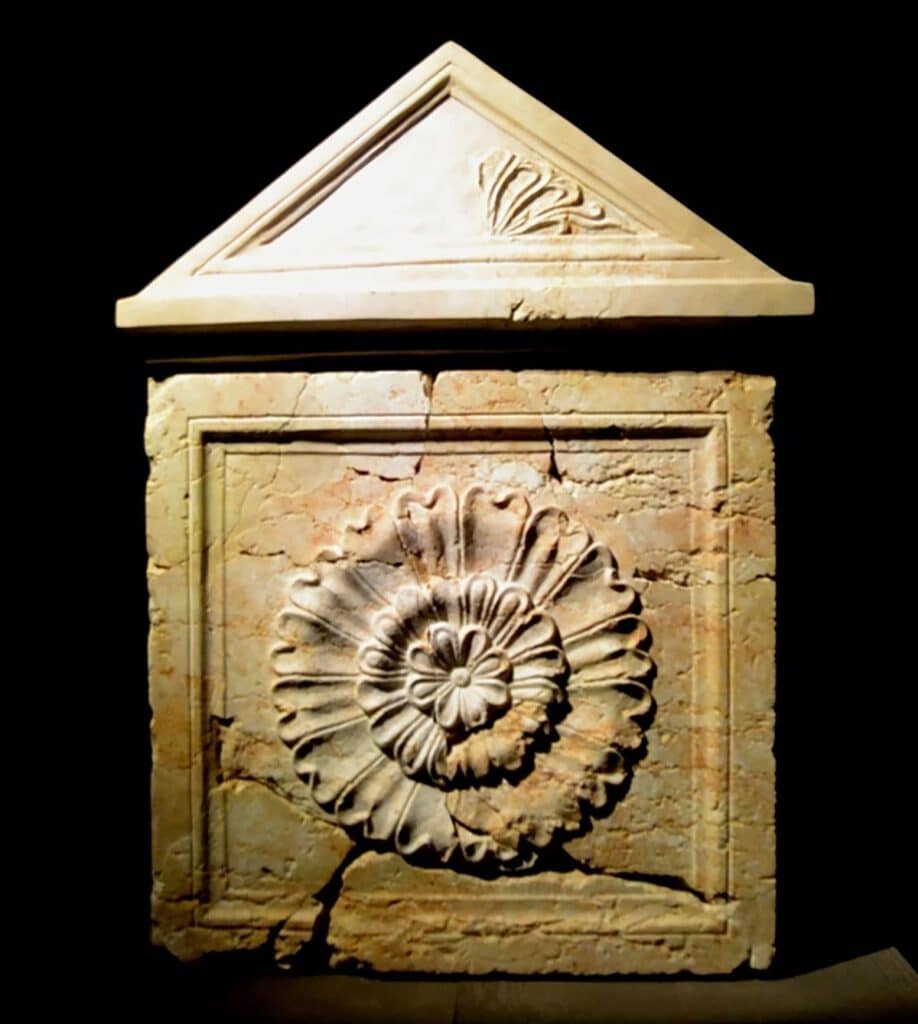
Schwab: Who we’re talking about on the podcast though.
Yael: And kicking off a great season two.
Schwab: Yeah. Wow. Thank you so much for sharing this story. I feel like a lot to think about… definitely will be on my mind the next time I go to the Kotel, just like thinking about everything that went into it.
Yael: I have a very emotional connection to the Kotel in Jerusalem. Not everybody does, I know, but I happen to. And the fact that it’s the product of this madman is a little unsettling. While I was preparing this episode, I actually kept an outline, very detailed outline of which parts of Herod’s life lines up with which plot points in The Godfather. I just wanted to share that publicly so that I could give my father a little bit of nachas.
Which hopefully, this podcast has been giving him all along, but you never know. If after all of this palace intrigue and discussion about honey you still want to know more about Herod, please check out our video on Herod at jewishunpacked.com. We’ll link to it in the notes for this episode. Schwab, so great hanging out with you again.
Schwab: Yeah. It’s so nice to be back. Really looking forward to the rest of this season. I’m excited to share with you all the research I’ve been diving into.
Yael: Hopefully, not too many more mass murderers.
Schwab: (laughs) Yeah, oh boy.
Yael: Maybe get some Jewish heroes in the mix too.
Schwab: We do have some really great and complicated Jewish heroes.
Yael: Amazing.
Schwab: And we’re so excited to be back with you, nerd nation, which is our-
Yael: I’m all in on this nerd nation talk radio situation.
Schwab: That’ll be great if we did like a live call-in episode, you know, and someone’s like, “Hey, It’s Steve from Queens, and I gotta tell you, I don’t, I don’t appreciate what Herod is doing. I’m not a fan of the things you’re talking about and describing.”
Yael: It’s not the Queens way.